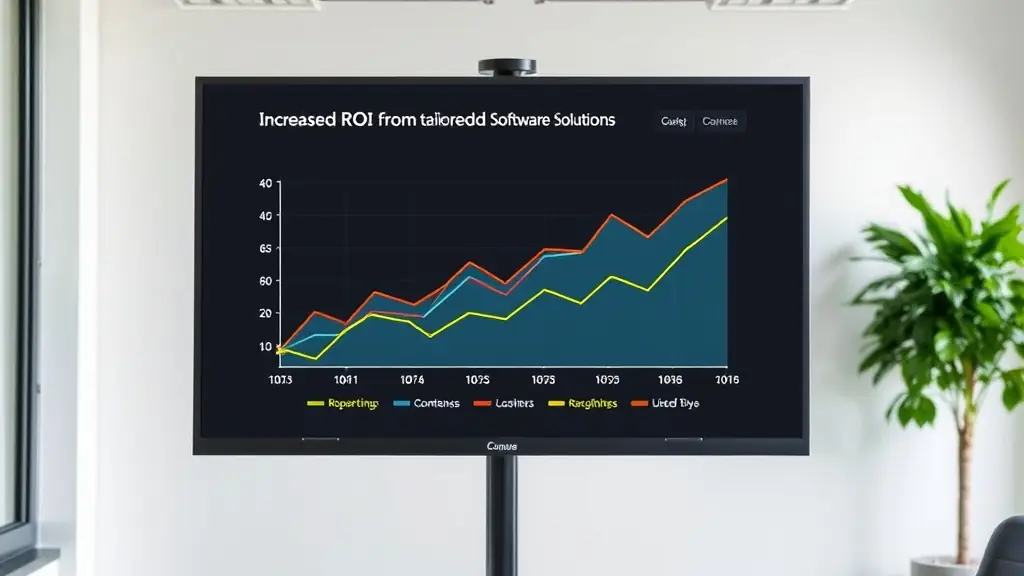Technology has transformed how Essex businesses operate, from corner shops using digital payment systems to manufacturing firms managing complex supply chains. Yet many business owners across the county—from Harlow to Southend-on-Sea—find themselves struggling with IT challenges that seem to multiply faster than they can solve them. Professional IT Support Essex isn’t just about fixing computers when they break; it’s about building a technology foundation that supports business growth and protects against costly disruptions.
The Reality Check: Does Your Essex Business Actually Need IT Support?
Beyond the Obvious Signs
Most business owners wait until something breaks before considering professional IT help. Your server crashes during peak trading hours. Email stops working just as you’re finalising that crucial contract. Your website goes down during your busiest sales period.
But smart Essex businesses don’t wait for disasters. They recognise the subtler signs that indicate IT support could transform their operations: staff spending hours on routine computer problems, inconsistent backup procedures, outdated security measures, or simply the nagging worry about what would happen if technology failed tomorrow.
Size Doesn’t Determine Need
Whether you’re running a two-person consultancy in Chelmsford or managing a fifty-employee operation in Basildon, technology dependence creates vulnerability. The myth that only large corporations need professional IT support has cost countless Essex businesses time, money, and customers.
Understanding the Hidden Costs of DIY IT Management
The Jack-of-All-Trades Problem
Many Essex businesses rely on their most technically inclined employee to handle IT issues alongside their regular duties. This person—often reluctant and certainly untrained in professional IT management—becomes the unofficial tech support, pulled away from revenue-generating activities whenever problems arise.
This approach seems cost-effective initially, but calculating the true expense reveals a different story. Factor in their regular salary, time spent troubleshooting, productivity lost by other employees waiting for solutions, and the risk of mistakes that could compromise data or security.
When Problems Compound
DIY IT management often creates a domino effect of issues. Delayed software updates leave security vulnerabilities. Inadequate backups mean one hardware failure could destroy years of customer data. Poor network configuration slows everyone’s work. Each small problem multiplies, creating bigger, more expensive challenges.
Consider Mark’s electrical contracting business in Colchester. Attempting to save money on IT support, he managed their systems himself. When their main computer failed, Mark discovered their backup system hadn’t worked properly for months. Three years of customer records, project files, and financial data vanished. Professional IT support would have cost a fraction of what Mark spent recovering from this preventable disaster.
Who Benefits Most from Professional IT Support?
Businesses Handling Sensitive Data
Essex companies dealing with personal information—medical practices, legal firms, financial services, recruitment agencies—face strict regulatory requirements. GDPR compliance isn’t optional, and the penalties for data breaches can be devastating for smaller businesses.
Professional IT support ensures proper data encryption, secure access controls, regular security updates, and compliance monitoring. It’s not just about avoiding fines; it’s about maintaining customer trust and professional credibility.
Companies Experiencing Growth
Success creates new challenges. Your original IT setup, perfect for a small team, becomes inadequate as you hire more staff, open new locations, or expand services. Professional IT support scales with your business, implementing solutions that support growth rather than hindering it.
Businesses That Can’t Afford Downtime
Every Essex business loses money when technology fails, but some face particularly severe consequences. E-commerce sites lose sales directly. Manufacturers may halt production. Service businesses disappoint clients and damage relationships.
Professional IT support minimises downtime through proactive monitoring, preventive maintenance, and rapid response when problems occur.
What Professional IT Support Actually Includes
Proactive Monitoring and Maintenance
Rather than waiting for problems to announce themselves, professional IT support continuously monitors your systems for signs of trouble. This includes checking server performance, monitoring network traffic, ensuring backups complete successfully, and installing security updates.
This proactive approach prevents many problems entirely and catches others before they cause significant disruption.
Strategic Technology Planning
Professional IT support providers don’t just fix problems—they help Essex businesses plan for future needs. This includes recommending appropriate software solutions, planning hardware upgrades, designing network improvements, and ensuring your technology investments align with business goals.
Training and User Support
Technology is only valuable if your team can use it effectively. Professional IT support includes training staff on new systems, providing ongoing user support, and ensuring everyone understands security best practices.
The Different Models of IT Support Available
Pay-Per-Incident Support
This traditional model charges for each service call or repair. While it seems cost-effective for businesses with minimal IT needs, costs can quickly escalate when multiple issues arise. It’s also entirely reactive—you pay to fix problems after they’ve already disrupted your business.
Managed IT Services
This comprehensive approach treats IT support as a business partnership rather than a repair service. For a predictable monthly fee, managed service providers take responsibility for maintaining, securing, and optimising your entire technology infrastructure.
Managed services work particularly well for Essex businesses wanting predictable costs and proactive support. Instead of expensive emergency repairs, you receive ongoing maintenance that prevents most problems from occurring.
Hybrid Support Models
Many Essex IT support providers offer flexible arrangements combining elements of different models. You might have managed services for critical systems with pay-per-incident support for less essential equipment.
Making the Business Case for IT Support
Calculating the True ROI
Professional IT support pays for itself through improved productivity, reduced downtime, and prevented disasters. Essex businesses typically see returns through faster problem resolution, improved security, better system performance, and staff freed from IT troubleshooting to focus on revenue-generating activities.
Don’t forget less tangible benefits: peace of mind, improved customer confidence, and the ability to take advantage of new technology opportunities without worrying about implementation challenges.
Starting Small and Scaling Up
You don’t need to commit to comprehensive managed services immediately. Many Essex businesses begin with basic support arrangements and expand as they see value and their needs grow.
The key is choosing an IT support provider who can scale with your business, offering more comprehensive services as you’re ready for them.
Choosing Your IT Support Partner
The Local Advantage
Essex businesses benefit from working with local IT support providers who understand regional business dynamics and can provide rapid on-site response when needed. Local providers also tend to build stronger relationships and provide more personalised service.
Look for providers with experience supporting businesses similar to yours in size and industry. They’ll better understand your challenges and requirements.
Professional IT support transforms technology from a source of stress into a competitive advantage. For Essex businesses serious about growth and sustainability, it’s not an expense—it’s an essential investment in their future success.



